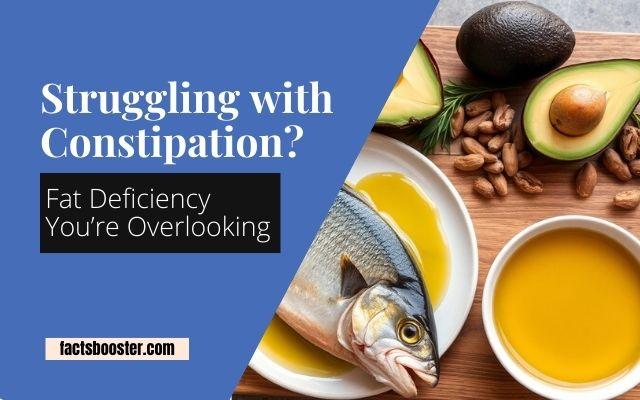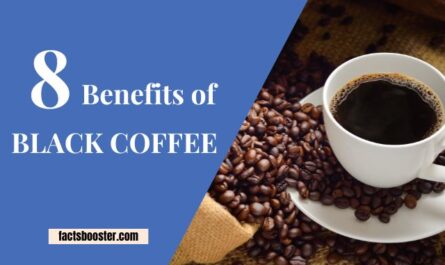Constipation is an issue that affects millions of people worldwide, causing discomfort and digestive issues. If you’re battling with severe constipation and wondering why nothing seems to work, you might be overlooking a critical factor in your diet: fat.
While many focus on fiber and hydration to relieve constipation, few realize that healthy fats play a significant role in keeping your digestive system running smoothly.
In this article, we’ll dive deep into how fat deficiency could be contributing to your digestive problems and offer practical solutions for constipation relief.

Understanding the Digestive Role of Fat
When we think of digestion, fat is often viewed negatively—usually associated with weight gain or heart disease. However, healthy fats serve several essential functions, including aiding the digestion process.
Fat stimulates bile production, a substance produced by the liver that helps break down fat in the small intestine. Without enough bile, digestion slows down, leading to digestive issues such as constipation.
Moreover, fats help lubricate the stool, making it easier to pass. A low-fat diet can cause harder stools, making bowel movements more painful and infrequent. Fats also support the absorption of fat-soluble vitamins (A, D, E, and K), which contribute to overall gut health.
Signs You’re Not Getting Enough Fat
A fat deficiency can manifest in several ways, and constipation is just one of the symptoms. Here are other signs that you might not be consuming enough fat:
- Dry skin and hair: Healthy fats contribute to skin and hair health. If they appear dry or brittle, you may need more fat in your diet.
- Hormonal imbalances: Fats are essential for hormone production. Lack of fats can lead to mood swings and other hormonal issues.
- Fatigue: Without enough fat, your body can struggle to maintain energy levels.
- Constipation: A lack of dietary fat can result in hardened stools and difficult bowel movements.
If you’re experiencing any of these symptoms in addition to severe constipation, it may be time to assess your fat intake.
Read more:
How Fat Intake Affects Constipation
The relationship between fat and constipation comes down to how fats work within your digestive system. When you eat healthy fats, your body responds by releasing bile and stimulating the intestines, aiding smooth and regular bowel movements. In contrast, a low-fat diet can result in slower digestion, leading to constipation. (1, 2, 3)
Healthy fats also add moisture to the stool, helping prevent dry, hard bowel movements. This is particularly important for those on high-fiber diets, as fiber alone can sometimes make constipation worse if not combined with adequate fat intake. Therefore, balancing both fiber and fat is crucial for improving digestion and preventing digestive issues.
Healthy Fats That Can Relieve Constipation
To ensure smooth digestion and constipation relief, it’s important to incorporate the right kinds of fats into your meals. Here are some healthy fats to consider:
- Olive oil: Rich in monounsaturated fats, olive oil is an excellent choice for digestive health. It stimulates bile production, which helps break down fats more efficiently.
- Avocados: Full of healthy fats and fiber, avocados are great for gut health and relieving constipation.
- Nuts and seeds: Almonds, flaxseeds, and chia seeds provide both fiber and healthy fats that promote regular bowel movements.
- Fatty fish: Salmon and mackerel are high in omega-3 fatty acids, which reduce inflammation and support healthy digestion.
- Coconut oil: This medium-chain triglyceride (MCT) oil is easily digestible and can help keep stools soft and regular.
Common Misconceptions About Fat and Constipation
There are several myths surrounding fats and how they impact digestion. One common misconception is that fats should be avoided to prevent weight gain or heart disease. While it’s true that unhealthy fats (like trans fats) can have negative health effects, healthy fats are essential for gut health and can improve digestion.
Another myth is that all fats slow down digestion, which is only partially true. While excessive consumption of unhealthy fats can lead to digestive problems, the right balance of healthy fats enhances digestion and can prevent severe constipation.
Practical Ways to Add Healthy Fats to Daily Meals
If you’re looking for practical ways to add healthy fats to your daily meals, here are some ideas:
- Drizzle olive oil on your salads or roasted vegetables.
- Add avocado slices to sandwiches or smoothies.
- Snack on a handful of nuts or seeds between meals.
- Use coconut oil when cooking or baking.
- Incorporate fatty fish like salmon into your weekly meal plan.
By making small, intentional changes to your diet, you can easily boost your fat intake and support better digestion.
Read more:
How to Ensure You’re Getting the Right Amount of Fat for Gut Health
Getting the right amount of fat is essential for gut health and preventing digestive issues. Here’s how to ensure you’re meeting your body’s needs:
1. Aim for balance
Include a combination of monounsaturated, polyunsaturated, and omega-3 fats in your diet.
- Monounsaturated fats: Found in olive oil, avocados, and nuts, these fats are heart-healthy and can help improve digestion by stimulating bile production, which aids in breaking down food and moving it through the intestines.
- Polyunsaturated fats: These include omega-6 and omega-3 fatty acids. While omega-6 fats are found in seeds, nuts, and vegetable oils, omega-3 fats, found in fatty fish like salmon, are particularly important for reducing inflammation in the gut and promoting healthy digestion.
By consuming a variety of fats, you support your digestive system, ensure proper nutrient absorption, and maintain overall gut health. Striking a balance between these different fats helps prevent digestive issues and constipation, while also benefiting your heart, brain, and skin.
2. Listen to your body
If you’re feeling fatigued, experiencing dry skin, or battling constipation, it may be a sign that you need more fat.
- Fatigue: Fats provide long-lasting energy. If you’re feeling chronically tired or lacking stamina, it may indicate a shortage of fat in your diet, which is needed for proper energy metabolism.
- Dry skin: Fats, especially omega-3s, help to maintain the skin’s moisture barrier. Your skin may become dry, flaky, or irritated when you don’t consume enough healthy fats.
- Constipation: Without adequate fat, stools can become hard and difficult to pass. Fat helps to lubricate the digestive tract, easing bowel movements. Pay attention to these signals as they are clear indicators your body needs more fat.
3. Don’t fear fats
Remember that healthy fats are not the enemy. They’re crucial for hormone balance, digestion, and overall well-being.
- In the past, fats were often demonized as a cause of weight gain and heart disease, but modern nutrition science shows that healthy fats are essential. Fats play a key role in regulating hormones, which influence everything from mood to metabolism.
- They also help you absorb essential fat-soluble vitamins (A, D, E, K), all of which are necessary for maintaining digestive health and supporting overall bodily functions. So, don’t be afraid to include healthy fats in your diet, as they can enhance digestion and prevent constipation without the negative effects of unhealthy trans fats.
4. Pair fat with fiber
For optimal constipation relief, make sure to balance your fat intake with fiber and plenty of hydration.
While fat helps lubricate the digestive system, fiber adds bulk to the stool, making it easier to pass. Combining both in your meals creates a more effective digestive process, preventing constipation.
Foods like avocados and nuts are excellent because they contain both fiber and healthy fats. In addition, drink plenty of water to ensure that the fiber can move smoothly through the digestive tract. Hydration is key to avoiding constipation, as fiber absorbs water and softens the stool.
This combination of fat, fiber, and hydration is ideal for keeping your digestion regular and avoiding discomfort from constipation.
Conclusion
If you’ve been struggling with constipation despite increasing your fiber and water intake, it’s time to consider whether a fat deficiency is the missing piece of the puzzle. Healthy fats are essential for gut health and improving digestion, and neglecting them can lead to severe constipation. By incorporating more fats like olive oil, avocados, and fatty fish into your diet, you’ll achieve constipation relief and support a healthy and balanced digestive system.


